Recent articles on the net have been discussing the throat-slitting of pharaoh Ramessess III (1185-1154 BC). In this blog, we will look at the harim conspiracy that surrounded not only his death – but also the deaths and punishments of those who were involved in the conspiracy to eliminate him.

The gods horus and seth crowning Ramesses III. Source – ancientegypt.org
Background:
Following over three decades of warfare against the so-called Sea People, who attacked Egypt from the north, together with the massive building enterprise at Medinet Habu, on the west bank of the Nile across from Thebes, Ramesses III was assassinated. The records that recount both his assassination and the following trials are contained in the papyri Lee and Rollin, the papyrus Rifaud, and the Turin ‘Judicial Papyrus.’
See also –
http://www.pharaon-magazine.com/actualites/ramses-iii/la-conspiration-du-harem
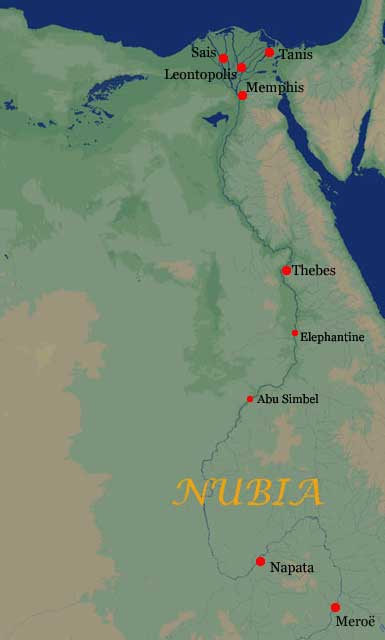
Medinet Habu is located on the west bank of the Nile, across from Thebes. Source – odysseyadventures.com
In 2008 an examination of the mummies of Ramesses III and of the so-called Screaming Mummy, found in proximity to Ramesses III, was conducted. A slash wound in the neck of the mummy of Ramesses III was discovered and it was decided that further exams were needed – as explained here.
Results of the most recent exam of the two mummies are found here: Revisiting the harem conspiracy and death of Ramesses III: anthropological, forensic, radiological, and genetic study
These results suggest that the Pharaoh was indeed killed by his throat being cut while, based on DNA analysis, the so-called ‘Screaming Mummy’ could well be Pentawere, his son who was seeking the throne. in conjunction with a palace coup in which his mother , Tiy (Tye), played a leading role.

The so-called Screaming Mummy – possibly Prince Pentawere, the son of Ramesses III who may have been implicated in the killing of his father. Method of killing as a result of his actions would have resulted in his physical attitude. Source – NatGeo
Found embedded in the slash wound of Ramesses III was an Eye of Horus scarab, that would have been placed there to help assure passage of the pharaoh into the next world.
The papyri containing records of this event have, for over a century, been the source of continued debate. Their translation is not always straight forward and various interpretations of the trials have therefore been put forward. Was this merely a tale, told by his son and chosen successor Ramesses IV, or was it an actual recounting of events? Had Ramesses III been killed outright, and the trials thereafter organized by Ramesses IV, or had he lived long enough to orchestrate these events? As noted by Adrien de Buck in his 1937 translation of the event:
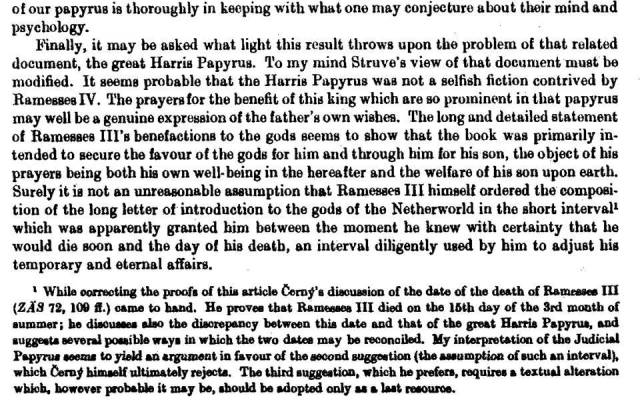 Source: A. de Buck – The Judicial Papyrus of Turin. Journal of Egyptian Archaeology, vol. 23(1), 1937.
Source: A. de Buck – The Judicial Papyrus of Turin. Journal of Egyptian Archaeology, vol. 23(1), 1937.
The Papyri:
In the following translation I am using the compilation and glosses of Reshafim (reference below). Glosses are in this color. Note that in the Turin Papyrus, before the name of each accused person, is written “The great criminal…”, and following his trial is written “they found him guilty, and they brought his punishment upon him” (or similar), thus adding an ominous tone to the document.
Records of the Harem Conspiracy against Ramses III contained in The Judicial Turin Papyrus, Rollin Papyrus and Lee Papyrus http://www.reshafim.org.il/ad/egypt/index.html
The Judicial Turin Papyrus … Ruler of Heliopolis …….. t[he] wh[ole] land ……… the whole land …….. their cattle …….. to bring them ……. 6 all ….. before them …… for them; the … are … ….. people saying …….. they are the abhorred of the land. I commission: The overseer of the White House, Mentemtowe; The overseer of the White House, Pefroi, The standard-bearer, Kara, The butler, Pebes, The butler, Kedendenna; The butler, Maharbaal; The butler, Payernu; The butler, Thutrekhnefer; The king’s-herald, Penrenut; The scribe, Mai; The scribe of the archives, Peremhab; The standard-bearer of the infantry, Hori; saying: I commission: De Buck used the Past Tense: I commissioned. There has been continued debate as to whether Ramesses III lived (long enough) to organize the trials, or whether he was killed during the coup and it was his son, Ramesses IV, who organized them. White House: the treasury Maharbaal: According to his Semitic name, an Asiatic. cf. The people of ancient Egypt. Asiatics were often freed slaves or the descendants of slaves. As for the words which the people have spoken, I know them not. Go ye and examine them. When they go out, and they examine them, they shall cause to die by their own hand, those who should die, without [my] knowing it. They shall execute the punishment [upon] the others, likewise without my knowing it. When [ye] [go] [see to it] that ye give heed, and have a care lest ye execute punishment upon …… unjustly …….. Now, I say to you in very truth, as for all that has been done, and those who have done it, let all that they have done fall upon their (own) heads; while I am protected and defended forever, while I am [among] the just kings, who are before Amon-Re, king of gods, and before Osiris, ruler of eternity.” When they go out…: According to Breasted it should read: When ye go out etc. de Buck on the other hand accepts the text as it stands and translates it as a narration: And they went and examined them, and they caused to die by their own hands those whom they caused (so) to die, though I do not know [wh]o, [and they] also punished [the] others, though I do not know who. Now, I say to you in very truth: According to de Buck the king exhorted his officials time and again not to convict wrongfully: Thus I spoke to them again and again. Persons brought in because of the great crimes which they had committed, and placed in the court of examination before the great nobles of the court of examination, that they might be examined by: The overseer of the White House, Mentemtowe; The overseer of the White House, Pefroi; The standard-bearer, Kara; The butler, Pebes; The scribe of the archives, Mai, The standard-bearer, Hori. They examined them; they found them guilty; they brought their punishment upon them; their crimes seized them. White House: The Treasury The great criminal, Pebekkamen, formerly chief of the chamber. He was brought in because of his collusion with Tiy and the women of the harem. He made common cause with them, and began bringing out their words to their mothers and their brothers who were there, saying: “Stir up the people! Incite enemies to hostility against their lord.” He was placed before the great nobles of the court of examination; they examined his crimes; they found that he had committed them. His crimes seized him; the nobles who examined him brought his judgment upon him. Tyi – a secondary wife of Ramesses III and mother of Pentewere, a secondary prince who those organizing the coup wanted to see elevated to the throne in place of Ramesses IV, who had been chosen by his father. The great criminal, Mesedsure, formerly butler. He was brought in because of his collusion [with] Pebekkamen, formerly chief of the chamber, and with the women to stir up enemies to hostilities against their lord. He was placed before the great nobles of the court of examination; they examined his crimes; they found im guilty; they brought his punishment upon him. Mesedsure: a pseudonym meaning “Re hates him” The great criminal, Peynok, formerly overseer of the king’s […] of the harem, [in the suite]. He was brought in because of his making common cause with Pebekkamen and Mesedsure, to commit hostility against their lord. He was placed before the great nobles of the court of examination; they examined his crimes; they found him guilty; Mesedsure: a pseudonym meaning “Re hates him” in the suite: while following. Part of the harem accompanied the king when he was travelling through Egypt. The great criminal, Pendua, formerly scribe of the king’s […] of the harem, [in the suite]. He was brought in because of his making common cause with Pebekkamen and Mesedsure, the other criminal, formerly overseer of the king’s […] and the women of the harem, to make a conspiracy with them, to commit hostility against their lord. He was placed before the nobles of the court of examination; they examined his crimes; they found him guilty; they brought his punishment upon him. The great criminal, Petewnteamon, formerly inspector of the harem, [in the suite]. He was brought in because of his hearing the words which the people discussed with the women of the harem, without reporting them. He was placed before the great nobles of the court of examination; they examined his crimes; they found him guilty; they brought his punishment upon him. The great criminal, Kerpes, formerly inspector of the harem, [in the suite]. He was brought in because of the words which he had heard and had concealed. He was placed before the nobles of the court of examination. They found him guilty; they brought his punishment upon him. The great criminal, Khamopet, formerly inspector of the harem, [in the suite]. He was brought in because of the words which he had heard and had concealed. He was placed before the nobles of the court of examination. They found him guilty; they brought his punishment upon him. The great criminal, Khammale, formerly inspector of the harem, [in the suite]. He was brought in because of the words which he had heard and had concealed. He was placed before the nobles of the court of examination; they found him guilty; they brought his punishment upon him. The great criminal, Setimperthoth, formerly inspector of the harem, [in the suite]. He was brought in because of the words which he had heard and had concealed. He was placed before the nobles of the court of examination; they found him guilty; they brought his punishment upon him. The great criminal, Setimperamon, formerly inspector of the harem, [in the suite]. He was brought in because of the words which he had heard and had concealed. He was placed before the nobles of the court of examination; they found him guilty; they brought his punishment upon him. The great criminal, Weren, who was butler. He was brought in because of his hearing the words from the chief of the chamber, and when he had [withdrawn from] him, he concealed them and did not report them. He was placed before the nobles of the court of examination; they found him guilty; they brought his punishment upon him. The great criminal, Eshehebsed, formerly assistant of Pebekkamen. He was brought in because of his hearing the words from Pebekkamen; and when he had left him, he did not report them. He was placed before the nobles of the court of examination; they found him guilty; they brought his punishment upon him. The great criminal, Peluka, formerly butler and scribe of the White House. He was brought in because of his collusion with Pebekkamen, having heard the words from him, without reporting them. He was placed before the nobles of the court of examination; they found him guilty; they brought his punishment upon him. Peluka: the Lycian. The Luka were one of the Sea Peoples, who invaded Egypt from the western Delta. The great criminal, the Libyan, Yenini, formerly butler. He was brought in because of his collusion with Pebekkamen, having heard the words from him, without reporting them. He was placed before the nobles of the court of examination; they found him guilty; they brought his punishment upon him. Wives of the people of the harem-gate, who united with the men, when the things were discussed; who were placed before the nobles of the court of examination; they found them guilty; they brought their punishment upon them: six women. The great criminal, Pere, son of Ruma, formerly overseer of the White House. He was brought in because of his collusion with the great criminal, Penhuibin, making common cause with him to stir up enemies to hostility against their lord. He was placed before the nobles of the court of examination; they found him guilty; they brought his punishment upon him. The great criminal, Binemwese formerly captain of archers in Nubia. He was brought in because of the letter, which his sister, who was in the harem, [in the suite], had written to him, saying: “Incite the people to hostility! And come thou to begin hostility against thy lord.” He was placed before Kedendenna, Maharbaal, Pirsun, and Thutrekhnefer; they examined him; they found him guilty; they brought his punishment upon him. Binemwese: a pseudonym, meaning “Wicked in Thebes” Persons brought in because of their crimes and because of their collusion with Pebekkamen, Peyes, and Pentewere. They were placed before the nobles of the court of examination in order to examine them; they found them guilty; they left them in their own hands in the court of examination; they took their own lives; and no punishment was executed upon them. they left them in their own hands: The judges left the criminals to execute their own punishment The great criminal, Peyes, formerly commander of the army. The great criminal, Messui, formerly scribe of the house of sacred writings. The great criminal, Perekamenef, formerly chief. The great criminal, Iroi, formerly overseer of the […] of Sekhmet. The great criminal, Nebzefai, formerly butler. The great criminal, Shedmeszer, formerly scribe of the house of sacred writings. Total, 6. Collusion, or the knowledge of a crime about to be committed without reporting it to the authorities was considered a lesser crime, and the accused were allowed to take their own lives. Persons who were brought in, because of their crimes, to the court of examination, before Kedendemia, Maharbaal, Pirsun, Thutrekhnefer, and Mertusamon. They examined them concerning their crimes; they found them guilty; they left them in their place; they took their own lives. Pentawere, who bore that other name. He was brought in because of his collusion [with] Tiy, his mother, when she discussed the words with the women of the harem, being hostile against his lord. He was placed before the butlers, in order to examine him; they found him guilty; they left him in his place; he took his own life. Pentawere, a secondary son of Ramesses III, who was being supported in the coup to become pharaoh in place of Ramesses IV. His mother, Tiy, being implicated in leading the coup on the part of her son from within the harim. he took his own life: based on the results of the most recent physical exams, Pentewere may well be the so-called ‘screaming mummy’, who (rather than suicide) may have been killed by hanging. As well, his mummy was wrapped in a goatskin and not traditionally mummified, which could have been part of his punishment.
The mummy that might have been Ramesses III’s son, Pentawere. Arrows indicate stretch marks that may have resulted from hanging. Source: BMJ livescience.com
The construction of this document, by which the secondary queen Tye, her son Pentwere, and their associates are discovered and condemned, suggests to me that the trials were organized and conducted under the reign of Ramesses IV, the chosen successor of his deceased father. Hence, the document serves to exonerate Ramesses IV and casting him as somewhat of a victim – but a victim who finally persevered. Just how, we may never know.
Accounts of the event that treat magical aspects of the assassination attempt, found in the Papyri Rollin and Lee, will be discussed in the next blog on this subject.

Red granite sarcophagus of Ramses III. Goddess Nephthys seated on the Egyptian language hieroglyph for gold. (Photo credit: Wikipedia)
Related articles
- Y chromosome of Ramesses III (dienekes.blogspot.com)
- ScienceShot: Who Killed Ramesses III? (news.sciencemag.org)
- Study reveals that Pharaoh’s throat was cut during royal coup (esciencenews.com)
- Scans show Pharaoh’s throat was slit (bbc.co.uk)

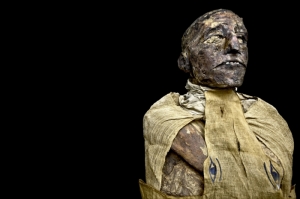
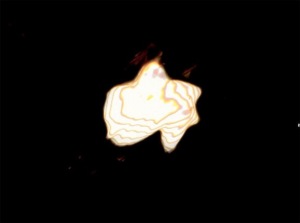

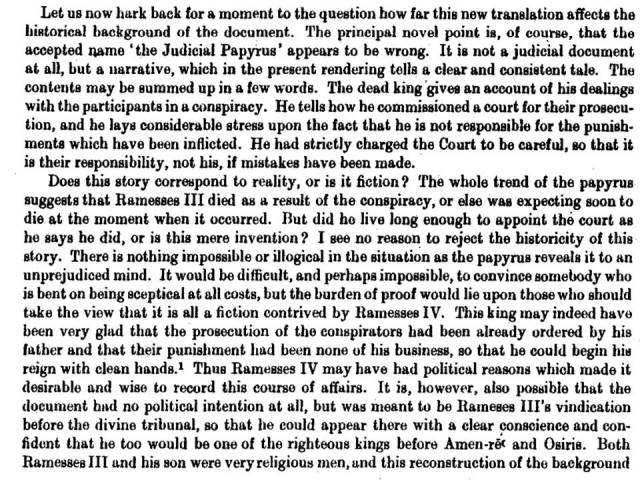


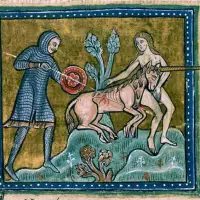
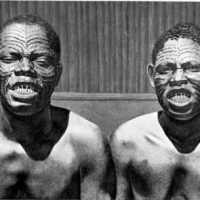
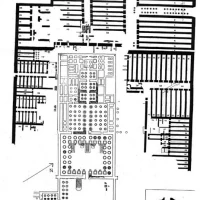
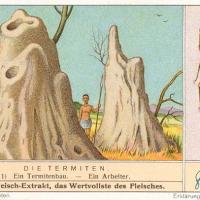



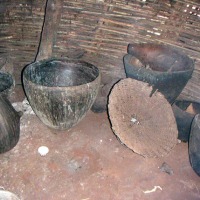















Pingback: Book Review – House of Dreams/Lady of the Reeds – The Book Voucher
I think the admin of this web page is genuinely working hard for his web page,
because here every data is quality based stuff.
LikeLike
Thanks, and I enjoyed your wise words on fitness and dieting – both of which I should work on!
LikeLike
Pingback: Blog # 3 | chunkachocolat